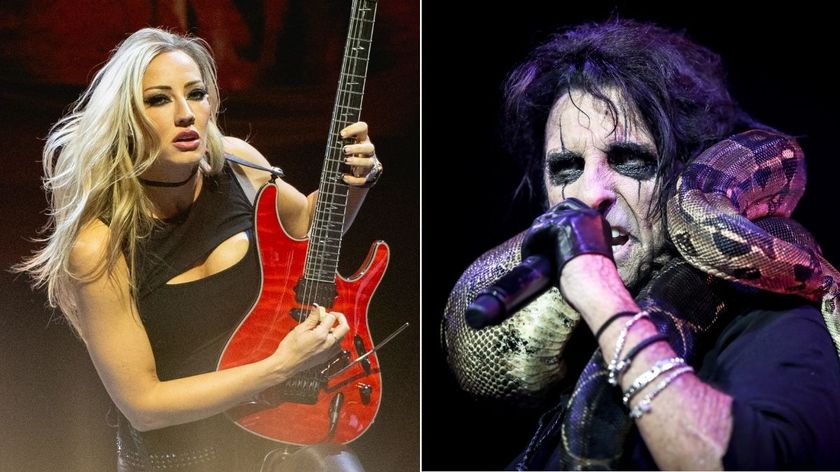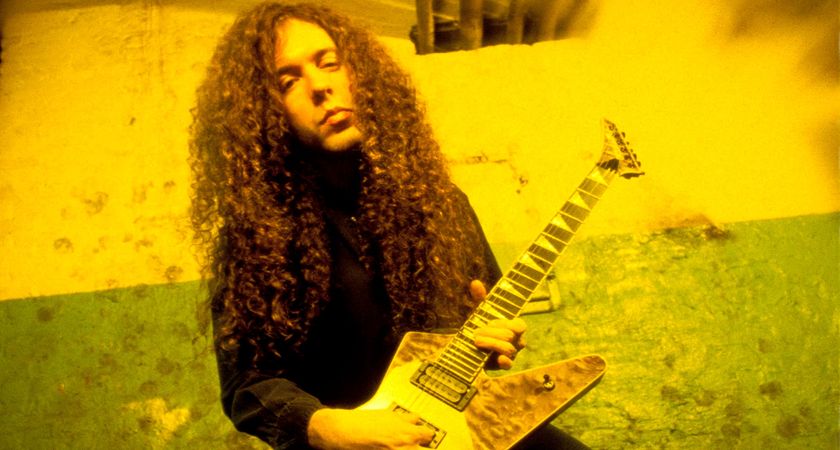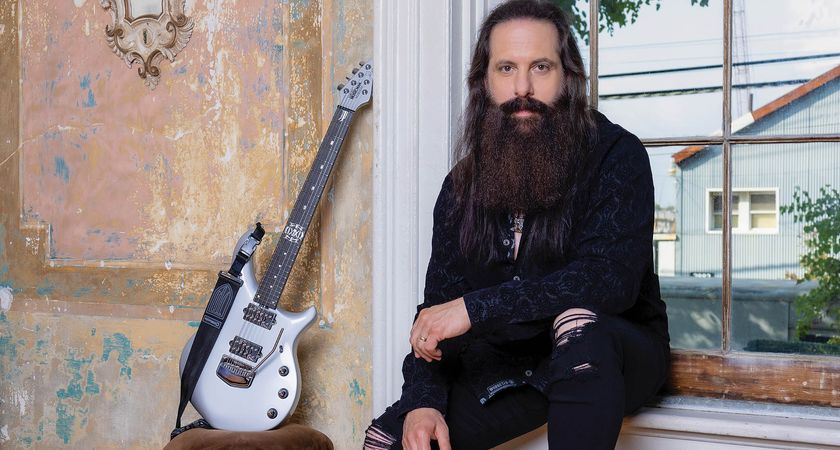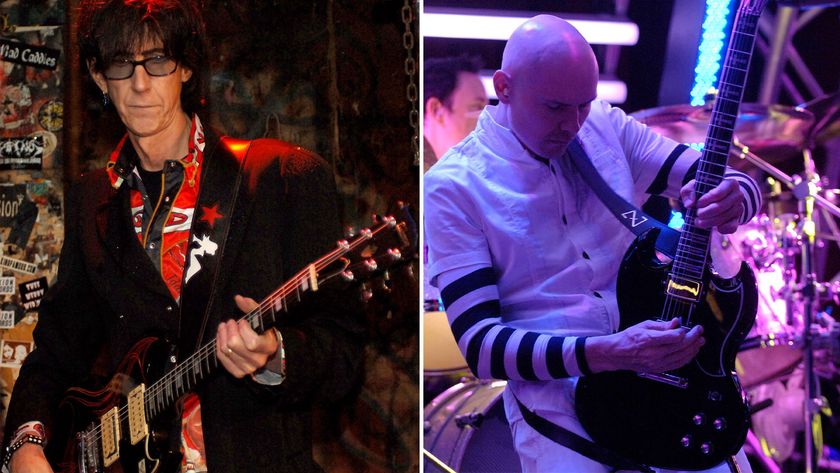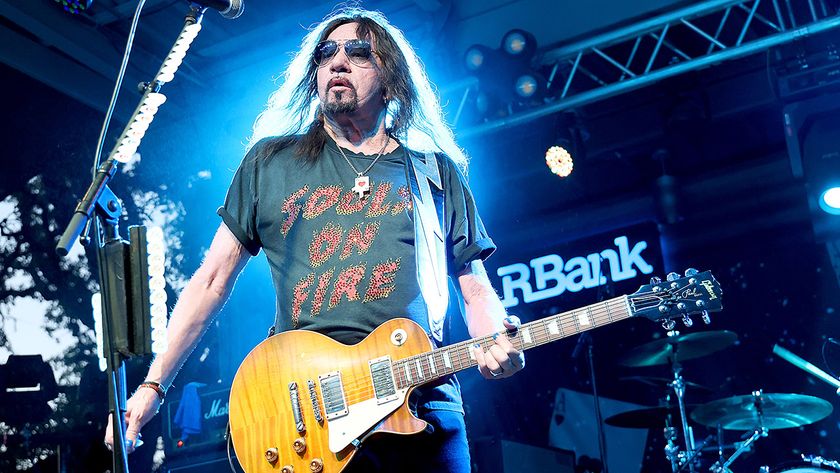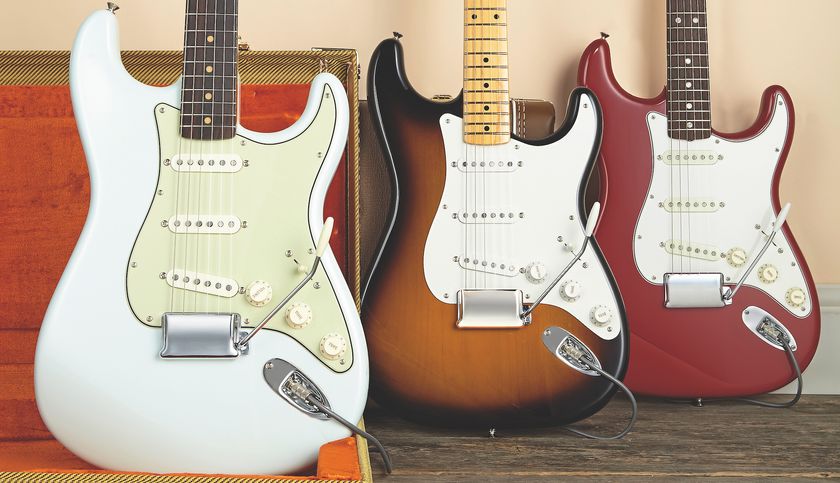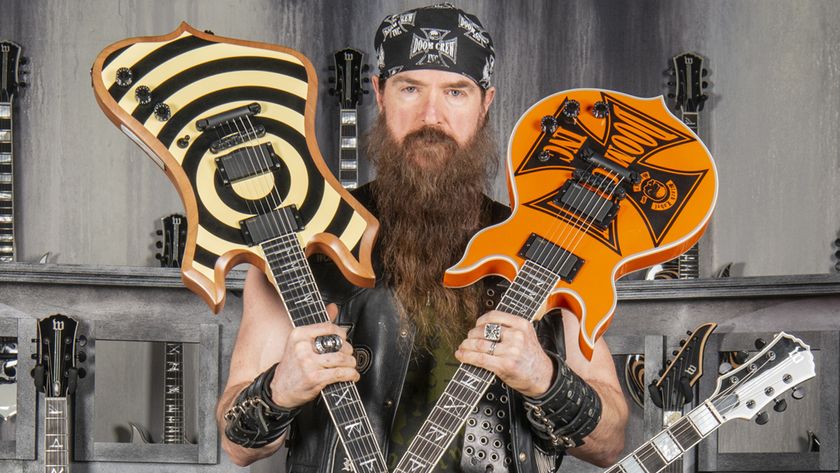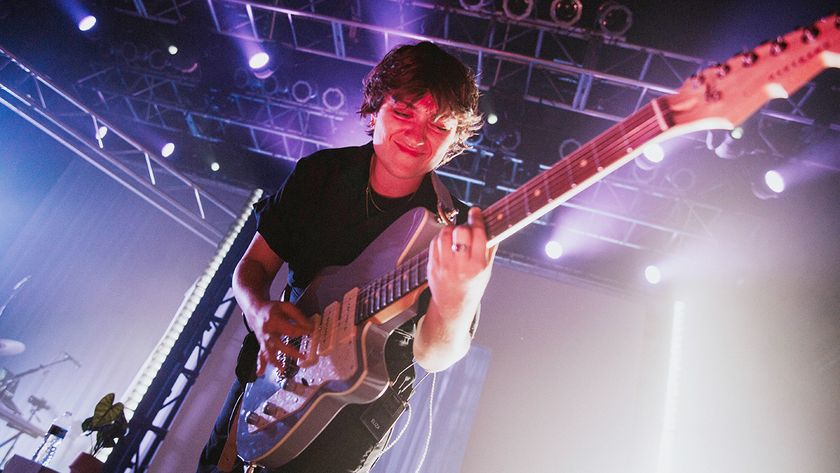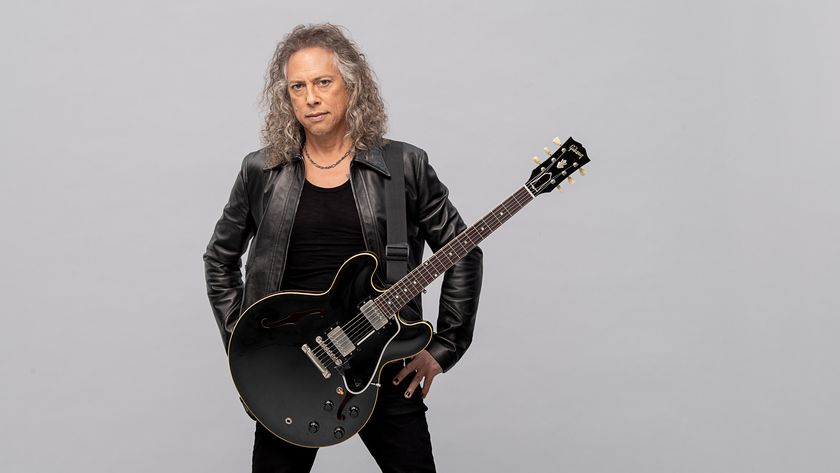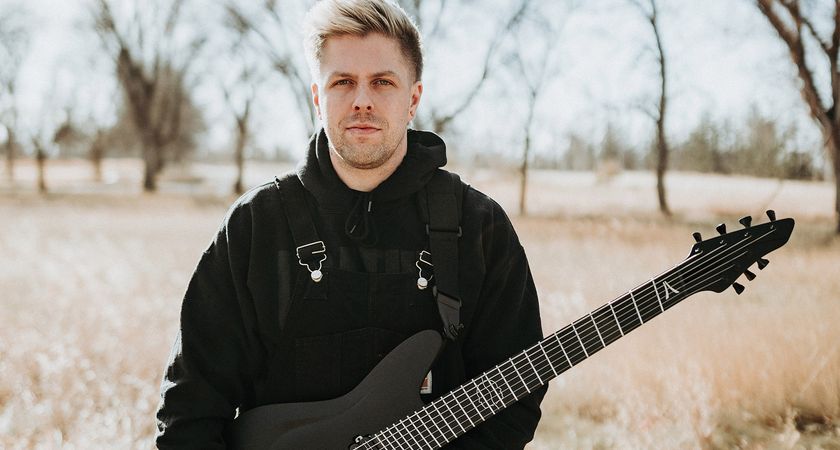“A lot of kids are getting millions of hits because they can play Eruption. If you want to impress me, write Eruption”: Jesse Dayton is glad he didn’t have a hit years ago – it might have taken away his freedom
Fresh from his “Bonnie and Clyde” success with Samantha Fish, the six-string outlaw talks low-string droning, Texas storytelling and why it’s worth struggling with vintage gear – in the studio at least
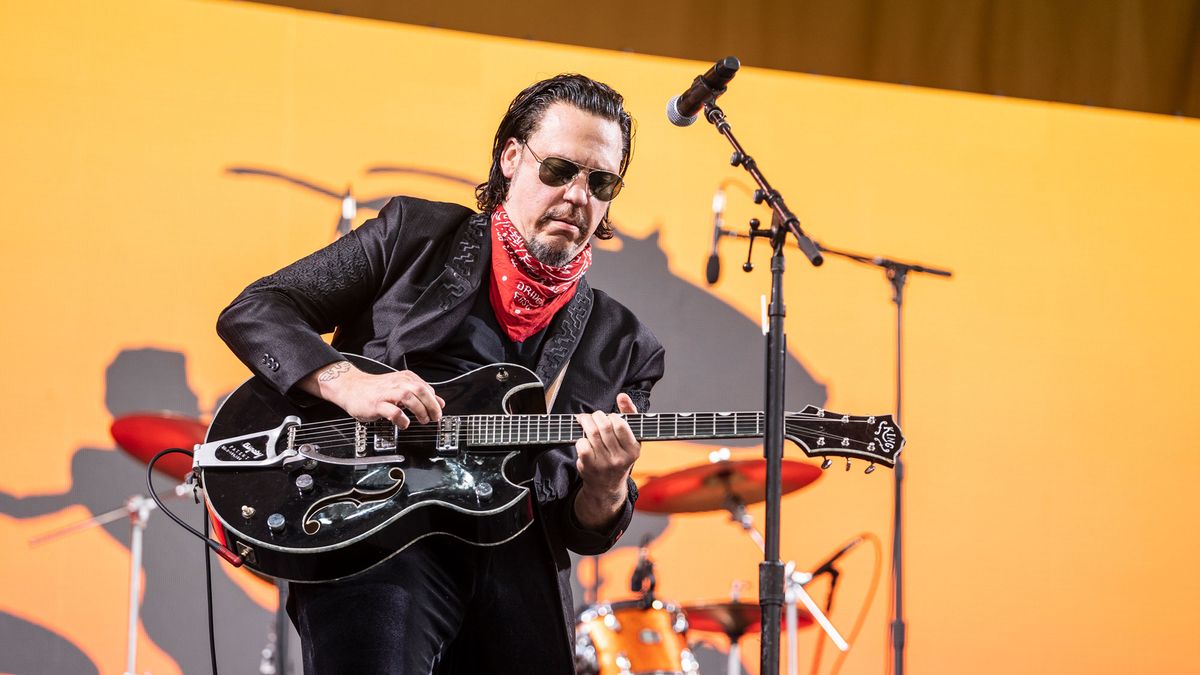
Jesse Dayton is hard to pin down. Is he blues? Is he country? Is he the one true modern-day outlaw? Maybe; maybe not – and none of it matters to him anyway. He’s been chopping away in decidedly non-conformist fashion since the ‘90s. His solo catalog is sprawling, and he’s worked alongside Johnny Cash, Waylon Jennings, Willie Nelson and Rob Zombie.
At 57 and having been around the block a time or six, the success of his collaboration with Samantha Fish is no surprise – but what did turn heads was the breakneck speed of that success via 2023’s Death Wish Blues, which nabbed a Grammy nomination.
With his latest solo record, the Shooter Jennings-produced Hard Way Blues, he’s still doing it his way. “I’m super-excited to go out and play with my band,” he says, “because me and Samantha have been joined at the hip for 14 months.
“She’s the Bonnie to my Clyde, and we have a very special thing. But this record means being able to go out and have artistic freedom. Samantha and I always say that when we go out and play with our own bands, it feels so awesome to come back to our duo – that’s contrast. Freedom and contrast are what this record is about.”
You’ve been around for what seems like forever, but things have really gotten going for you lately.
“Yeah, it’s cool. It does feel like there’s a little bit more – I don’t know – consciousness about what’s going on with me. But I look at it all kind of the same way: I’m just steadily working and steadily playing.
“It’s all about writing songs and putting on the best shows I can. But yeah, coming off Death Wish Blues with Samantha, and getting the Grammy nomination, the No. 1 record and stuff like that has been a big help.”
Get The Pick Newsletter
All the latest guitar news, interviews, lessons, reviews, deals and more, direct to your inbox!
How did the songs on your Hard Way Blues album come about?
“During COVID, I went down this whole rabbit hole of these East Texas country blues records. It was all these guys that grew up around where I grew up; I’m from Beaumont. I started listening to Lightnin’ Hopkins, Mance Lipscomb and Blind Lemon Jefferson, hearing how they did the thing where the low string’s droning the whole time they’re playing.
“I got really into that, man. I started writing songs like Baby’s Long Gone and Navasota, and I think if you mix that style of playing – which I don’t hear much out there – and you add this kind of Texas storyteller songwriter component to it, I think it makes for some unique music. There’s not a lot of what I’m doing that’s out there; the blues world can be pretty paint-by-numbers.”
Why do you think that is?
“Because I think people spend 10,000 hours trying to be explosive guitar players, and they don’t spend 10,000 hours trying to be explosive songwriters. A lot of times with the blues, we say the line, you repeat the line, then you do the tagline, and everybody’s waiting for the solo.
“They’re not genuinely interested in the song. That has a lot to do with it. I like approaching it like Townes Van Zandt and Guy Clark; they were like college dissertations and had a great effect on my songwriting.”
But you can rip it up on guitar when you want to. What’s the function of solos in your songs?
“I try to serve the song. The song is not there to serve the guitar solo, although some people are into that. I can play fast, and I can play sophisticated stuff; I’ve spent my time learning jazz stuff and shredding. I love some of that, but I think the role that lead guitar plays for me is more about character and storytelling.
“If you listen to my leads, they usually have an intro, a beginning, a middle and an end. Not all the time – they’re often just out of the gate, ripping until the end. But I think mimicry is a big deal.
“I know that there are a lot of young kids on TikTok who are getting millions of hits because they can play Eruption. But if you want to impress me, write Eruption.”
That mentality shows in your music. There’s an outlaw vibe, and you’ve worked with people like Rob Zombie to Johnny Cash, who are both true outlaws.
If guitar fans come out and see me, we’ll give them something different than the typical Stevie Ray Vaughan with John Bonham drums
“I bring all that baggage with me. When I was writing some of the stuff on the record, I’d just finished playing shows with Glenn Danzig. Glenn’s one of the great rock voices of all time – I think what it makes me want to go deeper into the character that I am.
“I think where the good shit happens in art is when people go deep into what they’re doing. If you dance around it, and you’re not 1,000 percent committed, people are almost like horses – they can smell the fear.”
A lot of people lump you in with blues and country; but you seem unafraid to step outside the box.
“Thanks, man. I’m sure some people will call me a ‘blues player,’ which is kind of crazy because I do all sorts of stuff, like chicken pickin’, ‘60s trucker licks, and this whole spaghetti western cinematic thing. And I love folk music, and I love weird tunings.”
Trying to hang a genre on anybody, especially a player like you, is arbitrary.
“I agree. They only invent them so they can sell it. I get it, but for me, I’m all about songs. My God that I pray to is the song, you know? That’s why I’m a huge Rolling Stones fan. I think Mick Jagger and Keith Richards are highly underrated songwriters.
“So I’m excited about the songs on my record. If guitar fans come out and see me do this record live, I think we’ll give them something different than the typical Stevie Ray Vaughan with John Bonham drums.”
Which of those songs best represent what you’ve just said?
“Navasota has got this dissonant chord; I could have just played at one, four or five, but it’s got this kind of weird chord in it. It also starts off like a Texas shuffle, and you’re like, ‘Oh, this is the blues.’ But then it goes into this whole other thing.
“I think Baby’s Long Gone has that kind of country blues thing to it. There’s some tasty stuff I do there where I kind of hold back on some stuff. I didn’t go crazy. I could have put lead guitar all over that thing – just shredded all over it, but I didn't want to get in the way of the message of the song.
“Navasota and Baby’s Long Gone are two songs that are going to be around for a long time in terms of my career.”
Your tone is of note, too. What went into crafting that?
“Well, Shooter Jennings produced the record. I used the King hollowbody [built by Jason Burns in London] with the TV Jones pickups and the Bigsby, and then we plugged it into an early ‘60s Fender Princeton. We played everything through that amp.
“I think I might have used a ’65 or ’66 Fender [black-panel] Super Reverb on a couple of songs, but almost everything is that little amp breaking up. I didn’t use any distortion pedals. It’s all going straight into the amp except for an Echoplex, which I really wanted to use to get that early Jimmy Page slap-back thing happening. That post-rockabilly slap-back in hard rock for a while was so cool. I don’t understand why more people don’t use it.”
For me it was like, ‘What did the Stones make their records with?’ They made them with small Fender amplifiers
That goes back to your point about being too paint-by-numbers thing. Players need to be more adventurous.
“I don’t want to be too judgmental, but there’s a lot of white noise in society, so raising whatever you’re doing above that noise is virtually impossible these days. I also think that a lot of the crowds have become less adventurous because corporations have taken over the music business. If people want soup, they feed them soup.
“I’m so happy I didn’t have a hit a long time ago, because I’d still be living off that and playing that. So, instead of getting a bigger crowd, I’d probably be diminishing at this point. That trajectory is one of the great things about having this cult status – my audience lets me experiment a lot.”
Circling back, a lot of people fear vintage gear because it’s too temperamental, but there’s a charm to wrestling with it.
“Absolutely. Using vintage gear on tour is next to impossible because stuff is gonna break so much easier; it’s just not made for that. But man, when you get in the studio, if you want to sound like all those records that you love, you’ve got to get the amps they were making those records with.
“For me it was like, ‘What did the Stones make their records with?’ They made them with small Fender amplifiers. They break up to where it’s not unbelievably distorted, but not clean.
“There’s a gray area – men have jumped out of windows to their deaths after trying to figure out some of those sounds. If you listened to the slide guitar on Navasota, I feel like the lead on it got that vibe.”
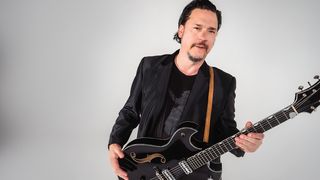
People may point to Shooter Jennings as the reason the record sounds the way it does. But haven’t you really made a record that sounds like you then enhanced by Shooter, rather than defined by him?
“Everyone thought because I played with his dad, Waylon Jennings, that me and Shooter were gonna go in and make this pure outlaw country record. But that’s only a part of what I do. The blues is a big part, folk music is a big part, and rock ‘n’ roll is a huge part of what I do. I was very happy that Shooter was open.
If you just want to be a craftsman, that’s great. But if you want to be an artist, you’ve got to take chances
“People are really hung up on, ‘Oh, this guy sounds just like this, and he’s the new Waylon,’ or ‘He’s the new Stevie Ray Vaughan.’ Man, I have no interest whatsoever in doing that. It’s like the line from the old Ricky Nelson song, Garden Party: ‘If memories are all I sing, I’d rather drive a truck.’
“If you just want to be a craftsman, that’s great. If you just want to say, ‘This is my deal; I don’t paint outside the lines,’ that’s fine. But if you want to be an artist, man, you’ve got to take chances, and you’ve got to push things. That’s one of the great things about not having the responsibility to repeat yourself and sell a million records.”
- The Hard Way Blues is out on May 31 via Hardcharger Blue Elan Records.
Andrew Daly is an iced-coffee-addicted, oddball Telecaster-playing, alfredo pasta-loving journalist from Long Island, NY, who, in addition to being a contributing writer for Guitar World, scribes for Bass Player, Guitar Player, Guitarist, and MusicRadar. Andrew has interviewed favorites like Ace Frehley, Johnny Marr, Vito Bratta, Bruce Kulick, Joe Perry, Brad Whitford, Tom Morello, Rich Robinson, and Paul Stanley, while his all-time favorite (rhythm player), Keith Richards, continues to elude him.
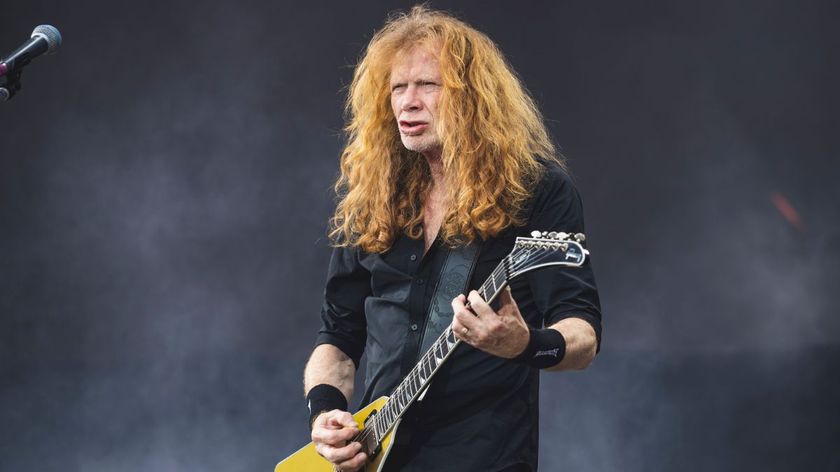
“Why didn't nu-metal bands do any solos? They couldn't do solos. Thank God that genre went away”: Dave Mustaine says nu-metal guitarists aversion to solos was down to a lack of lead talent – not stylistic choice
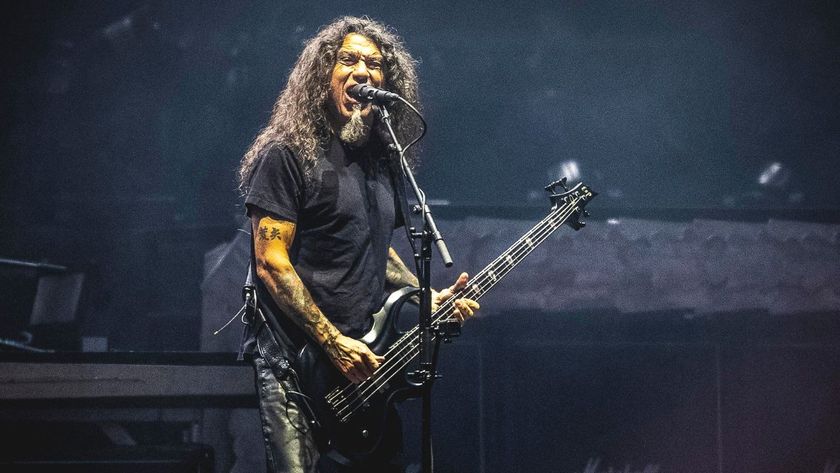
“A lot of Slayer riffs aren’t really for bass players – there’s just too many notes”: Slayer’s Tom Araya charts his incredible 4-string journey

